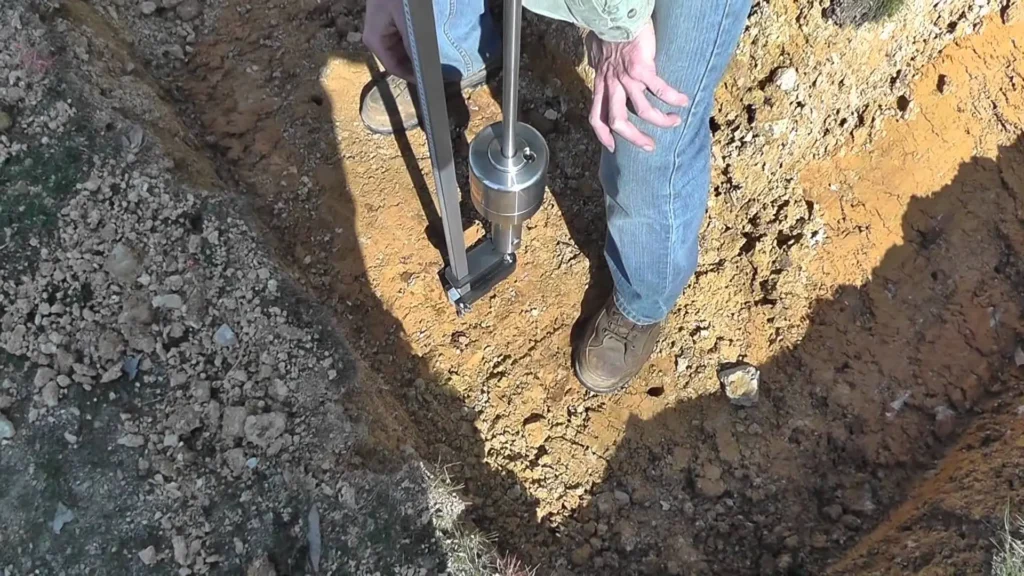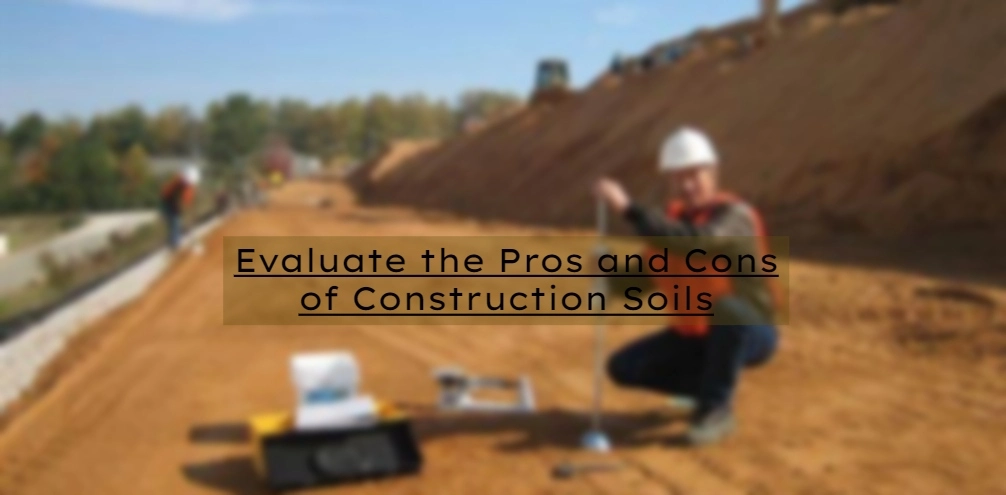Soil is an integral part of construction projects and is the decisive element in the strong foundations of buildings, roads, and other Construction Soils projects. A resilient foundation is attained through underlying surfaces including the type of soil which is firm during various seasonal spells and weather conditions. Moreover, the different types of soil impact foundations differently. An appropriate soil type doesn’t damage structures or affect shifting under the foundations. Central Material Testing has years of experience in soil testing for construction in Edmonton. The experts performing soil testing in Edmonton have listed the types of soils with their pros and cons to evaluate how well they can work in any construction project.
Peat
Peat is dark brown color soil often found in low-lying areas molded due to decayed plants. Peat can absorb water which makes it simply compressible. It is the worst construction material for foundations, yet, an excellent one for external walls and internal partitions. Peat-constructed houses were common years ago and were highly appreciated being a non-toxic material.
Pros:
- Eco-friendly and doesn’t pollute the environment
- Peat slabs act as an air cleaner when used on walls
- Peat slabs create sound and thermal proofing walls as well as spaces
Cons:
- Poor choice for supporting structures
- Needs high technical expertise to use peat correctly
- Sourcing peat blocks can be a challenge
Clay
Clay is easily moldable and absorbs water quite well. Clay soil shrinks and expands during weather changes. The benefits of clay-based materials to build walls have been common practice in Toronto and other parts of Canada for centuries. Soil Testing Edmonton evaluates well the pros and cons of clay used as a part of construction material.
Pros:
- Perfect material for humid conditions
- Long-lasting clay bricks add worth and style
- Insulation properties support saving energy costs
Cons:
- A worthless choice for foundation
- Highly vulnerable to dampness
- Need skilled builders for correct use

Rock
Rocky soils are commonly used in construction. Soil construction testing in Edmonton evaluates that rocky soil is obtained with rocks of variable sizes. However, not all rocky soils have similar densities and they have different tendencies to retain water. Rocky soil is light brown or grey construction material found all around the globe.
Pros:
- Useful, reasonable, non-toxic, and dependable
- Great weight-bearing capacity
- Ideal for supportive foundations
Cons:
- Efficient material for proper leveling
- Correct grain size is not found certainly; have to undergo some processing to obtain the right one
Silt
Slits are usually found in borrow pits and are made of small particles. Moreover, silt is known to absorb water for a longer time. Such soil tends to expand drastically as it drains poorly.
Pros:
- Enhanced water-holding capacity
- Fertile soil
- Easily manageable to work with than clay
Cons:
- Abates the foundation due to expansion
- Inappropriate for most heavy constructions
Sand
Sand is a common type of soil used in construction projects as it does not absorb moisture and drains quite fine. Most types of sand are evaluated by the Material Testing in Edmonton available at Central Material Testing and can be used for several determinations on construction site projects. Sandy soil is usually mixed with other materials to attain rigidity and steadiness in construction.
Pros:
- Backings heavy loads, hence appropriate for construction
- Propose good drainage
- Free of organic or mixed compounds
Cons:
- The sand elements can wash away, separating gaps under the foundation.
- Quality sand is costly
Loam
Loam has a mixture of silt, clay, and sand. The soil is dark in color, dry, and soft to the touch. The soil absorbs water at a more balanced rate. Moreover, considered an ideal construction material by the fraternity.

Pros:
- Perfect for construction as it absorbs water at a balanced rate
- Achieves air humidity if employed as a layer on the inside walls
- Perfect to build walls when assorted with straw
Cons:
- Effective for construction projects only if organic or varied soils aren’t mixed
- Enhanced than clay but worse than sand
Soil testing in Edmonton is more vital than ever because variations in construction projects need them to be evaluated well. Over the last two years, the cost of soil sampling and analysis has amplified little, while soil testing in Edmonton has increased twofold to fourfold.
To acquire the most accurate soil construction testing in Edmonton recommendations for increased efficiency requires:
- good soil samples and well-based sample information
- soil testing in Edmonton calibration relationships that reflect both construction response and profit response.
The goal of the soil Material Testing Lab in Edmonton is to provide a precise assessment of the soil’s strength to make construction recommendations. With the increasing awareness of soil effects on environmental quality, soil tests can also be used to determine the relative use of soil in construction projects.
Central Material Testing is a Canadian-based testing services company performing various tests on construction materials. Our experts are well-trained and labs are equipped with the latest tools and techniques to evaluate the right testing on the materials. We offer onsite and lab testing in Edmonton with reliable results and a 24-hour turnaround time. Get the quotation for your next project.



Leave a Reply